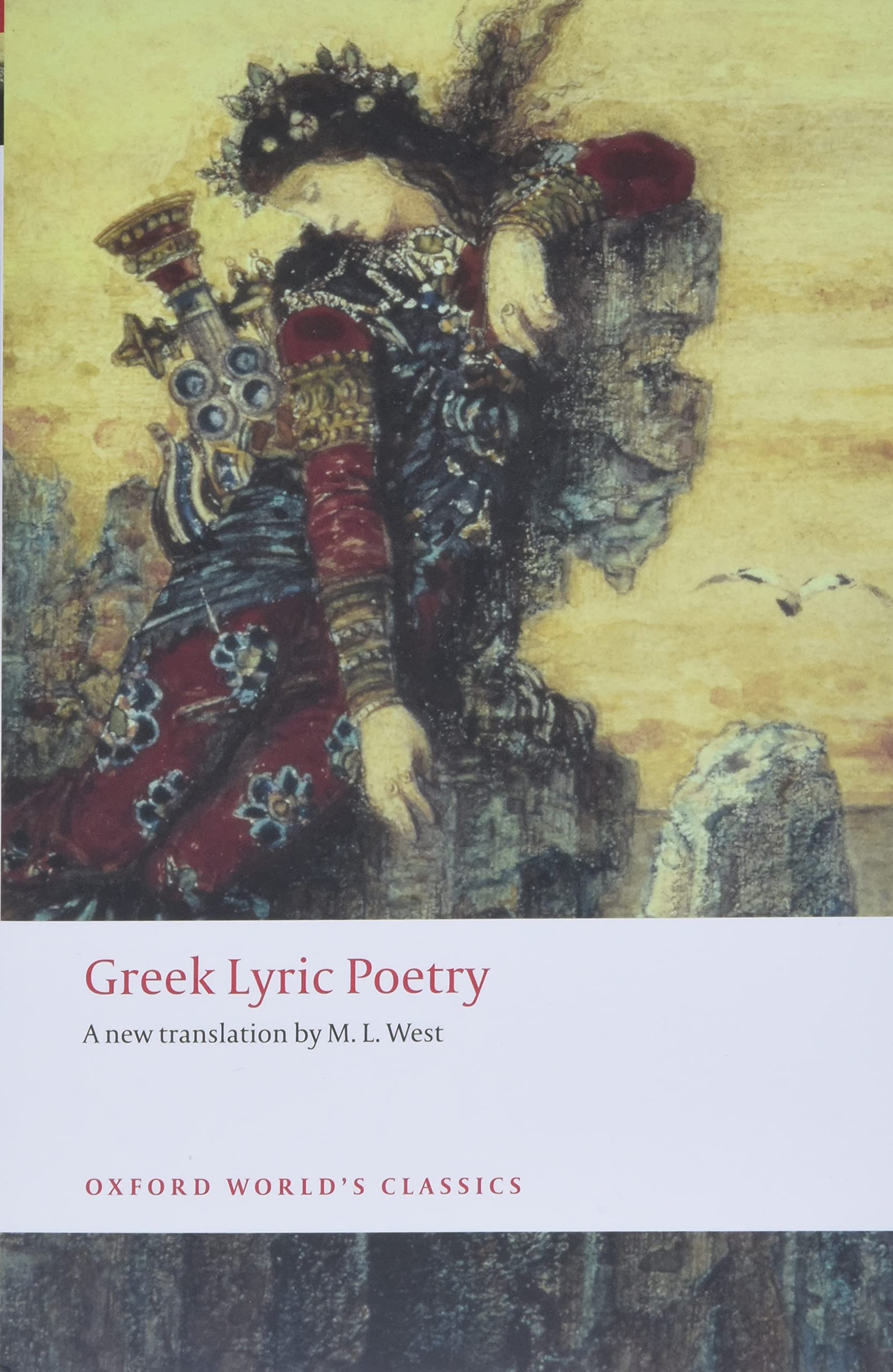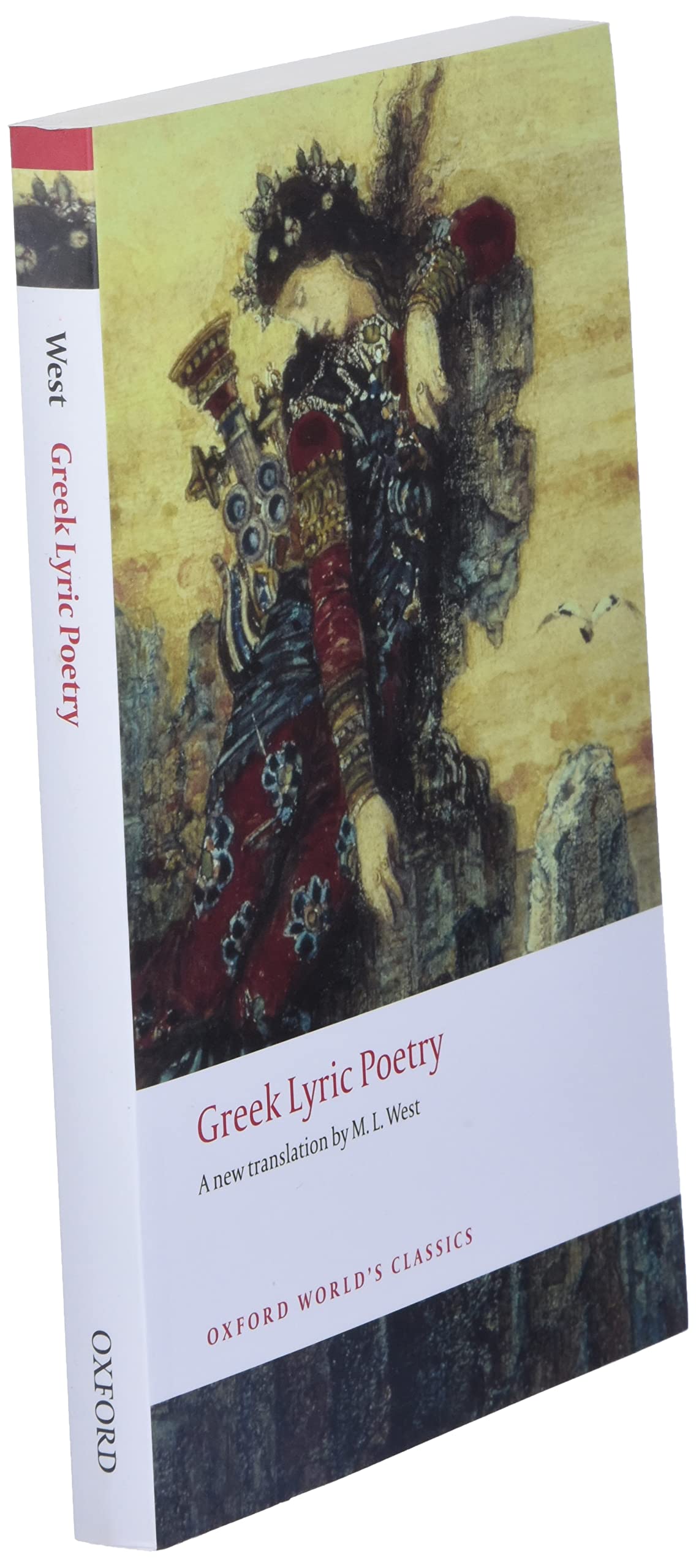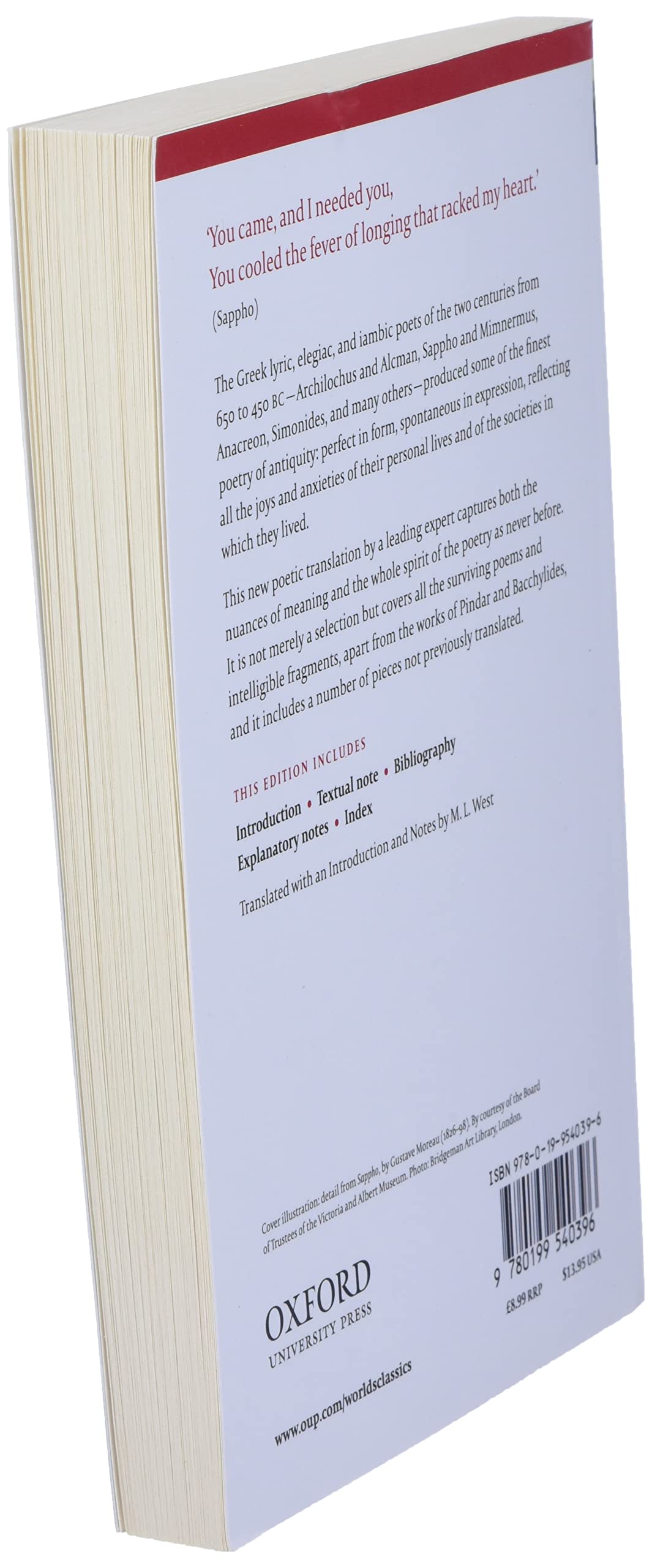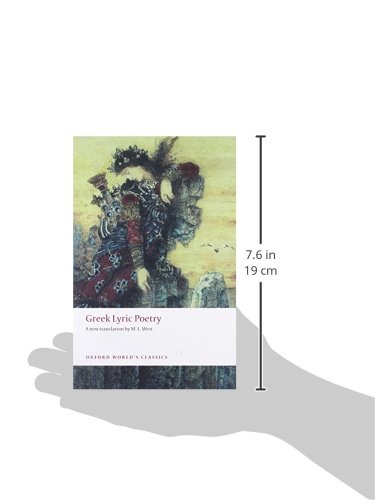معلومات عنا
دعم العملاء
احصل على التطبيق

قم بتوجيه الكاميرا لتنزيل التطبيق
حقوق الطبع والنشر © 2024 Desertcart Holdings Limited






Greek Lyric Poetry (Oxford World's Classics)
C**0
One of The Best Greek History Books I've Read
Because it gives the reader a distillation of Ancient Greek values.
J**L
Some of the oldest extant Greek writings, and pleasant enough reading
Aside from Homer, Hesiod, the Homer Hymns, Bacchylides, Pindar and small fragments of the Presocratic philosophers, the poems translated in this book are the earliest extant Greek writings. They are an essential source for thoughts about life and society. This translation is an especially good source for adages for quoting since this may be the earliest written appearance of common ideas, for example Archilochus, "There is no single kind of human nature,/ but different things warm different people's hearts." In fact, I think it would be useful for a carefully prepared index of topics to be added to this translation, like death, intoxication, friendships, etc. The most common topics for the poems is the uncertainty of the future and how hard it is to know someone's character. In many cases there are statements that wine makes a man reveal his hidden thoughts, and that when you are rich people pretend to be your friend and then when you are poor pretended friends spurn you. Another common topic is death. The poems that talk about death all think of it as being the end for you: there is no conscious afterlife in their world view. The kinds of excellence that are promoted are honesty, magnanimity, and willingness to die in battle. There are many statements about friendship, courtship, women and sex that are probably useful for the study of Archaic Greek society. Finally, there are references to the Pleiades, Sirius, the Dawn Star (Venus) which may be useful for the history of folk astronomy.
T**8
Disappointed with Oxford press
I was disappointed with this for a number of reasons, none of them the translator's fault.The copyright is 1993, not 2008 as shown on this page. 2008 is the date of the Oxford reissue.I ordered hard back, got paper. I suspect the hard cover is no longer available, if it ever was.And when did Oxford get so stingy with paper? The book is small, the pages are crowded. The entries need breathing space and the reader needs a break. The translator is poorly served as is the reader.The translations are straight forward, and the forms vary in accordance with the original, scanning occassionally, elevated when appropriate but not stilted. The notes are helpful enough. The organization into elegies, drinking songs, political poems etc. An be useful. As near as I can tell poems whose authorship is disputed are not included, or if so not noted, except for Theognis. There is a separate, fairy large section of works wrongly attributed to him. There is also a section of anonymous fragments, party songs and work songs that I have not seen elsewhere.This Oxford collection contains more pieces and fragments (including some very short ones) from some authors than I have found in other collections. Some times many more. It may be a useful tool for study because of that. But over all, I much prefer the collection by Andrew Miller, "Greek Lyric: an anthology translation" published by Hackett in 1996. Larger format, nicely laid out, a pleasure to read, very good notes that are in the text, not shoved to the end. The intros are helpful and feature quotes from early sources.
J**.
Three Stars
It was okay.
ترست بايلوت
منذ شهرين
منذ شهر